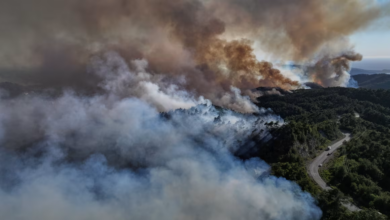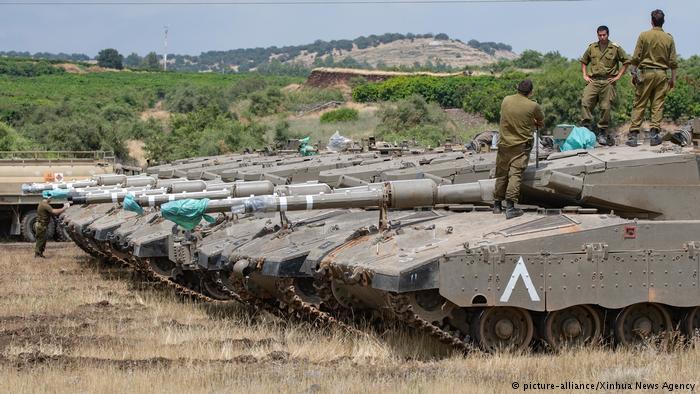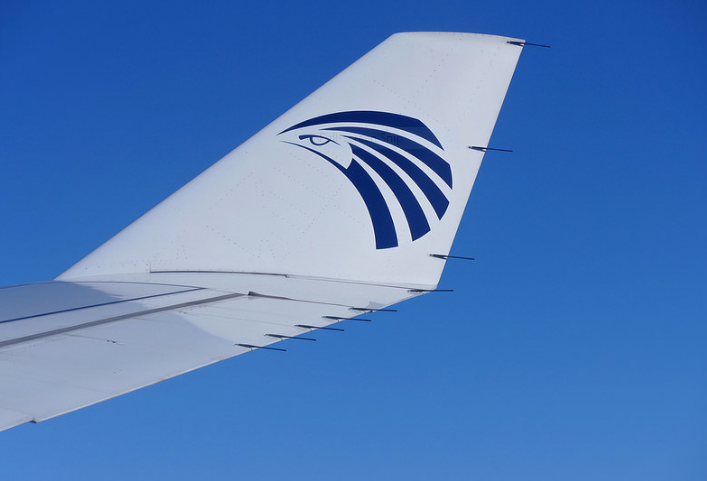The Middle East is a complicated place, perhaps no part of it more so than Lebanon, where all of the region’s pent-up conflicts are periodically unleashed. No sooner is one crisis over in that tiny country than another one looms ahead. This time, it’s over whether the Special Tribunal for Lebanon will indict members of Hizbullah for plotting the assassination of Rafiq Hariri in 2005. It’s worth remembering the series of events that have led to this particular crisis.
That assassination took the life of the Lebanese Prime Minister who spearheaded the reconstruction of the country after its long civil war. Hariri, a protégé of Saudi Arabia’s royal family and a channel for its investments, was also for many years an ally of the Syrian regime, which controlled most of Lebanon through secret police repression and corruption much like the one it uses at home.
In those days, the US–which had just invaded Iraq two years earlier and was starting to discover that running the place was more difficult than expected–had developed surprisingly good working relations with two enemies of the Saddam Hussein regime who benefited from its overthrow: Iran and Syria. Both were naturally worried that the US had secured a client regime in Baghdad, prompting them to cooperate with the Americans. For Iran in particular (which faced another US client regime to its East in Afghanistan) this was also a time of overtures towards the US by the reformist government of President Mohammad Khatami.
But the neoconservatives then on the rise in the Bush administration would have none of it, wanting regime change rather than any bargain with Damascus or Tehran in order to create their “new Middle East.” They focused their attention on Israel’s enemy Hizbullah, the only movement that has forced Israeli soldiers out of a territory without assistance. US officials began, astoundingly, to speak of the Shia organization as the “A-team of terrorism” surpassing al-Qaeda’s B team–perhaps explaining their lack of urgency in capturing Osama bin Laden.
The Syrians, rather nervous by this point, asserted themselves further in Lebanon. They began to fight with Hariri, insisting that Emile Lahoud, the Lebanese president and their puppet, should stay in power beyond his constitutional mandate. Bush and his administration seized on this to pass a UN Security Council resolution calling not only for a new president, but also for Syria’s withdrawal and Hizbullah’s disarmament. This caused the Syrians to rush their Lebanese allies into renewing Lahoud’s term and intimidate their enemies as they had successfully done before–with car bombs.
When one such bomb killed Hariri and 22 others, everyone assumed it was Damascus. If Syria did order the assassination, it had the opposite of the intended effect. It caused such outrage in Lebanon and the international community that all Syrian troops were out within 10 weeks, although the car bombs against anti-Syrian voices continued. And when the Special Tribunal for Lebanon first hinted at who might be involved, fingers pointed again to Damascus.
So it’s rather surprising that Syria appears to be no longer singled out by the Tribunal, which has instead turned its attention to Hizbullah, having linked cellphone activity immediately after the explosion to the group’s militants. But since Lebanon has discovered that one of its main telephone companies has been infiltrated by Israeli agents, it has become easy for Hizbullah to raise questions about any evidence based on phone records. Or indeed doubts about the independence of a Tribunal which leaks so abundantly and whose investigation has taken forever.
So now you have Saad Hariri–Rafiq’s son who made up with Syria when it began to seem unavoidable, despite previously asserting that the Assad regime had killed his father–tentatively reconciling with Hizbullah ahead of indictments that could plunge Lebanon into yet another political crisis. Some now wonder whether an apparently exonerated Syria (by the Tribunal, anyway) is quite happy to let Hizbullah take full blame, calculating that it won’t cause much trouble because the Lebanese will want peace first and foremost. The Saudis flew over to Sharm al-Sheikh, Damascus and Beirut, making a big show of unity with the Syrians, easing Lebanese fears about any trouble ahead. Never one to let the Saudis get all the limelight, the emir of Qatar paid a visit three days ago to Bint Jbeil, the south Lebanese village whose name has become synonymous with Hizbullah’s resistance against Israel.
All this is happening as the Obama administration appears to be taking a more confrontational stance towards both Iran and Hizbullah. John Limbert, one of the administration’s most knowledgeable Iran experts and its most important advocate of engagement, has resigned. Senior US officials increasingly talk of an attack on Iran’s nuclear facilities, and Congress has given a record increase in funding to Israel for an anti-missile shield. Sanctions on Iran have been passed, clamored for by hawks who are quite open about their belief that sanctions alone don’t work except as a mere prelude to military action. Bush-era sanctions against Hizbullah’s Lebanese allies, notably Michel Aoun, have been renewed even though they failed in the past. And the Israelis fervently hope that Hizbullah will soon be in trouble again domestically, reversing the PR boost that the Shia group received after the 2006 war.
Look at all of this from a different perspective. The region’s local actors are busy putting together an uneasy peace in Lebanon ahead of the Tribunal’s indictments. It’s not very satisfying, feels dirty, but is a better alternative than a renewed civil war that is likely to be regionalized. Its external actors–including Israel, which has never made much of an effort at fitting in, as well as the United States–find themselves yet again trying to reassert their vision of a simpler regional order that they could more easily control, with little patience for complexities. We’ve had one simple-minded president try to impose “moral clarity” on the Middle East before–to disastrous results. Are we to have another?
Issandr El Amrani is a writer on Middle Eastern affairs. He blogs at www.arabist.net. His column appears every Tuesday.




